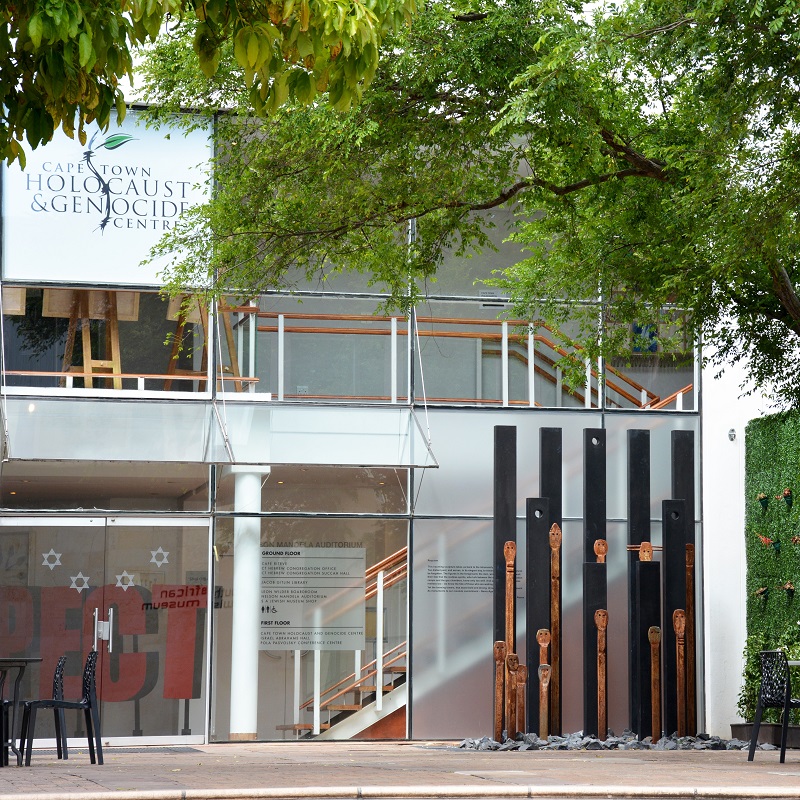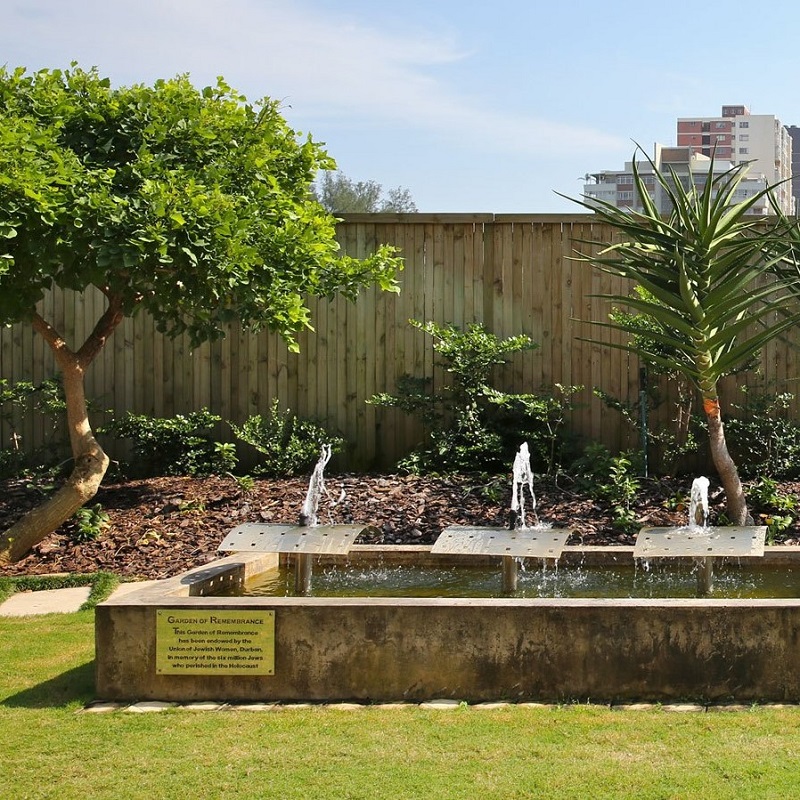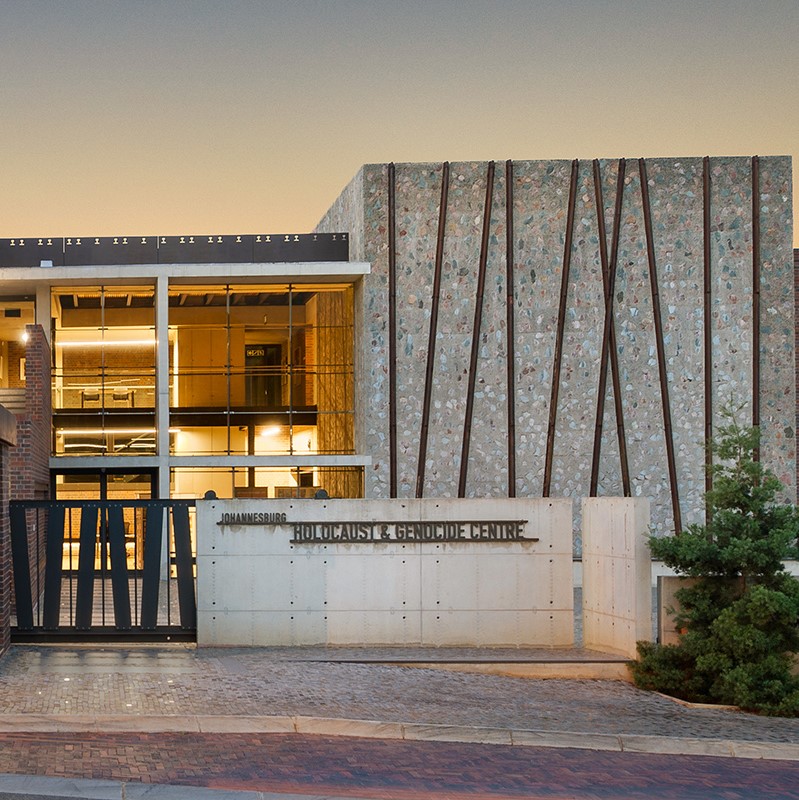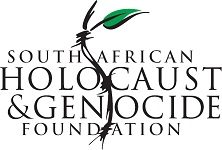


What we do
The South African Holocaust & Genocide Foundation (SAHGF) was established in 2007 by the Board of Trustees of the Cape Town Holocaust Centre (established in 1999) in response to the incorporation of the study of the Holocaust into the National High School Curriculum.
The SAHGF provides the educational and philosophical direction for the three Holocaust & Genocide Centres in South Africa and is dedicated to providing support for the national curriculum through the development of classroom support materials and the facilitation of national in-service teacher training, adult programmes and seminars.
In the tradition of the Cape Town Holocaust & Genocide Centre, through its public programmes the SAHGF raises awareness of Holocaust History and other genocides and uses the platform of the Holocaust to focus on human rights issues in contemporary society. Through its efforts, the SAHGF aims to help address the issues of racism, antisemitism, bigotry and marginalisation which still plague post-Apartheid South Africa, and to promote social activism.
The SAHGF is registered as an educational trust and has Section 18A status in terms of the Income Tax Act of 1962.
Learn more
History
Where we have come from
News
Read our Annual Reviews
Vision/Mission
What we stand for
Patrons & Trustees
The people championing and supporting our work
History of the SAHGF
Following the end of Apartheid, the South African Department of Education addressed the issue of drafting a new school curriculum with a strong human rights focus. As of 2007, the national History curricula for Grade 9 and 11 includes the study of Nazi Germany and the Holocaust. This greatly escalated the demand for the Cape Town Holocaust Centre’s education programmes and resources throughout the country.
In the light of this exponential growth in its national role and function, the Cape Town Holocaust & Genocide Centre’s Board of Trustees supported the establishment of a Holocaust & Genocide Centre in Durban which opened in March 2008 and appointed a committee to establish a Holocaust & Genocide Centre in Johannesburg which opened its offices in 2007. The permanent exhibitions are based on the much-acclaimed Cape Town exhibition which opened in 1999.
Drawing on Cape Town’s considerable experience and utilising the educational materials and resources that have been carefully developed for the South African context, the Holocaust & Genocide Centres provide programmes for adult groups, high school educators and learners in Cape Town, Durban, Johannesburg and beyond.
The expanded organisation known as the South African Holocaust & Genocide Foundation, is served by a Board of Trustees which comprise the existing trustees of the Cape Town Holocaust & Genocide Centre, with the addition of trustees from the Durban and Johannesburg regions.
Vision/Mission
Vision
The South African Holocaust & Genocide Foundation is dedicated to creating a more caring and just society in which human rights and diversity are respected and valued.
Mission
The South African Holocaust & Genocide Foundation strives to further Holocaust education in order to:
- Support the building of a human rights culture and to encourage respect for diversity
- Develop an understanding of the past so that the moral and ethical issues raised can be instructive in dealing with contemporary human rights abuses, for example, xenophobia, racism and bigotry
- Teaches about the consequences of prejudice, racism, antisemitism, xenophobia and homophobia, and the dangers of indifference, apathy and silence
- Encourage social activism and a greater individual responsibility to building the community
- Encourage empathy and compassion and a deeper understanding of what it means to be human
Patrons
Justice Richard J Goldstone
Professor Pumla Gobodo-Madikizela
Chief Rabbi Warren Goldstein
Professor Jonathan Jansen
Dr Stephen D. Smith
Revd Desmond M Tutu, Archbishop Emeritus
Trustees
Gerald Diamond (Chairman)
Julian Beare
Prof Michael Katz
Mary Kluk
David Fine
Brian Moshal
Myra Osrin
Prof Milton Shain




